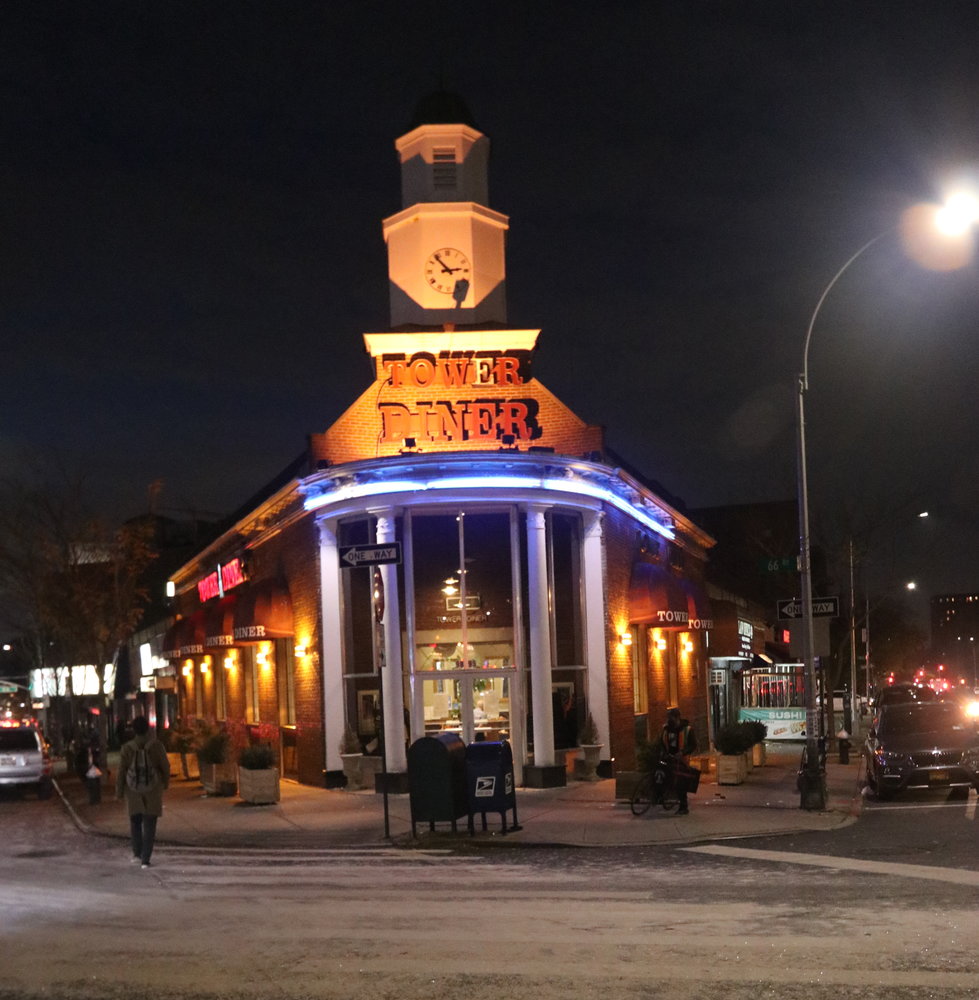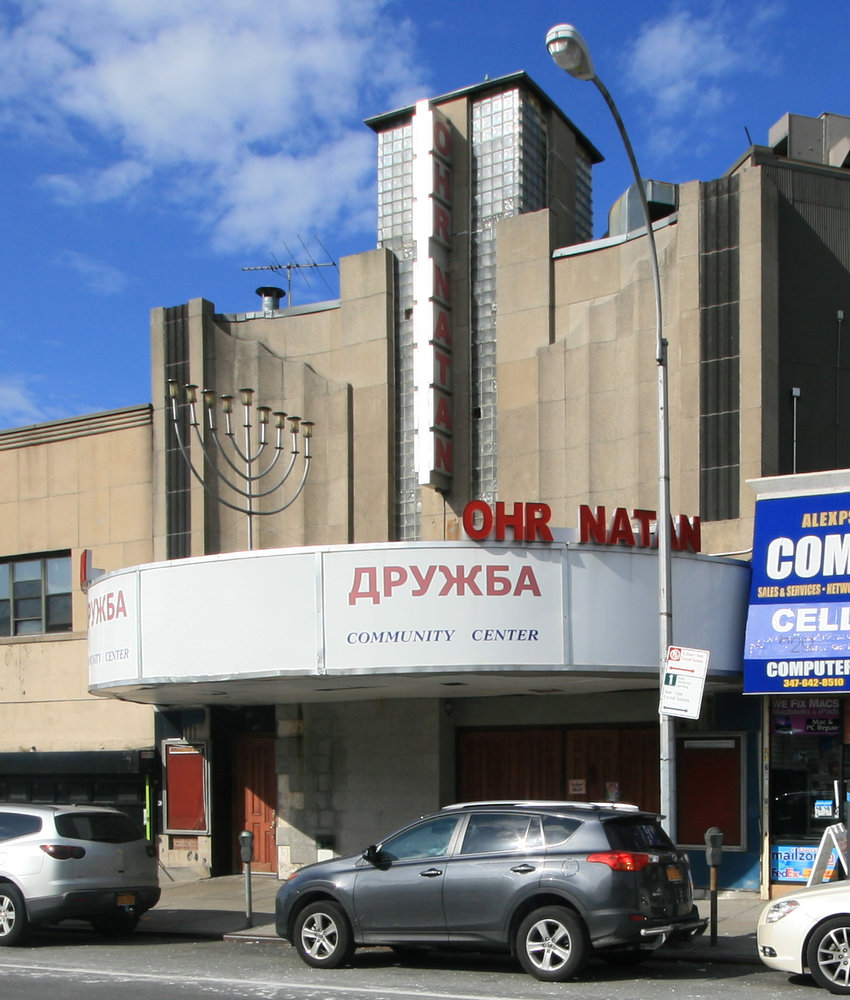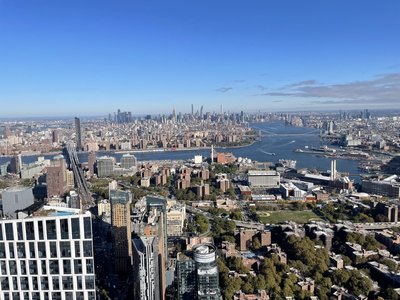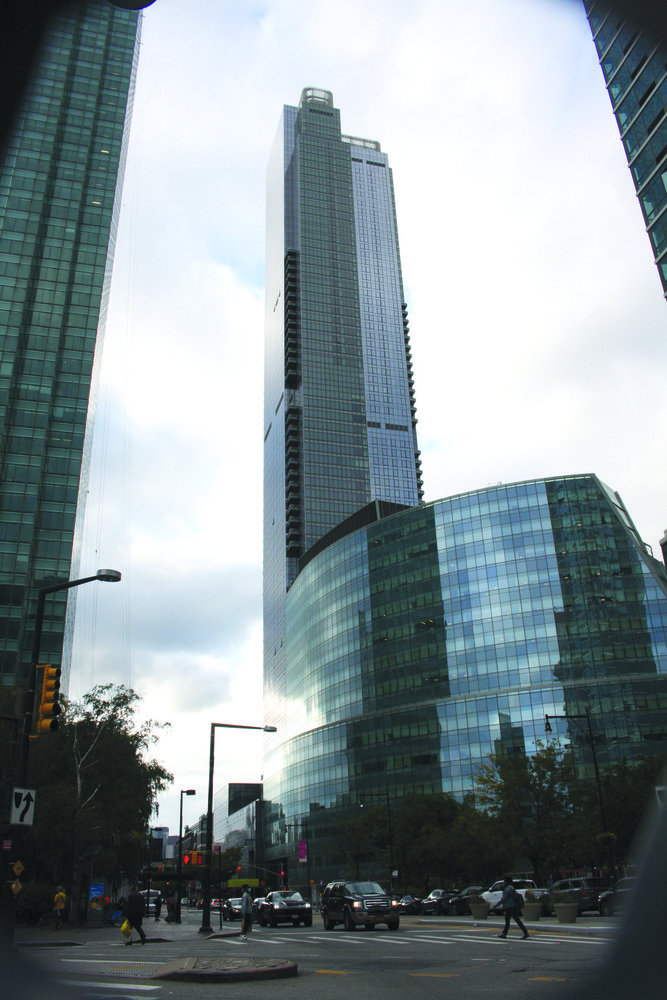Customers pay one last visit to Tower Diner
It was the end of an era on Sunday.
Tower Diner, a neighborhood cornerstone since 1993 that is housed in a historic Colonial bank building, was forced to shutter. The Queens Boulevard building is currently slated for demolition to make way for a new housing development.
The distinctive white clock tower has been an unofficial landmark in the neighborhood for generations.
“It’s an unofficial landmark,” said Regina Judith Faighes. “I grew up on 99th Street, and when my dad gave people directions to our home, he would tell them to look for the building with the clock tower.”
“I had a long wait for my table, and normally that would upset me,” she said of her final visit Sunday. “But this afternoon I was happy for the delay, because it gave me more time to experience the diner, with its warm and inviting classic decor.”
Longtime patrons had one last meal and took the chance to reminisce with staff, many of whom are regarded as extended family.
“The food was consistently fresh and delicious and the service was always excellent,” said Jane Firkser-Brody. “It is very disheartening to see yet another Forest Hills venue being destroyed, along with the charm and uniqueness of our awesome neighborhood.”
Tower Diner was opened by Jimmy Gatanas and his wife Anthi. Their sons Spiro and John worked in the business and later acquired it. It was the only diner of its kind in the vicinity, and became a go-to spot for dates, family outings, and birthday and graduation celebrations, as well as business meetings.
Tower Diner enticed the palates of notables such as Al Roker, Ti-Hua Chang, and Alonzo Mourning.
For the Gatanas family, who immigrated from Greece, Tower Diner exemplified the American Dream. They employed approximately 40 people, and gave back to the community with fundraisers benefiting St. Jude’s, sponsored PS 175 and Forest Hills High School sports teams, and donated Thanksgiving turkeys to local schools.
David Giwner moved from Manhattan in 2009, and called it his go-to diner in Forest Hills.
“I’ve never had a bad meal,” he said. “Losing Tower Diner is like losing a family member and a staple of our once great community. This is another piece of NYC history gone.”
Kevin Sanichara and his mother said the staff felt like a second family.
“I’ve been coming here almost every week for the past 20 years,” he said. “I will miss the ambiance and aesthetic of the old clock tower and the compass on the ceiling.”
For Matthew Semble, Tower Diner represents a big part of his life with his late wife Kathy Fogel.
“After Kathy’s passing, the employees and management reached out to me and my son Alex, and sent many meals during shiva and beyond,” he said. “There aren’t many businesses that had such a positive impact on our community.”
In addition to enjoying one last meal, patrons had the chance to sign a petition opposing the demolition, which will also include several small businesses and the Trylon Theater, which is currently home to Ohr Natan synagogue.
“I’m going to miss the diner, and especially the tower for which it was named,” said Michael Hennessy. “Hopefully the community will fight any further neighborhood destruction.”
“I strongly oppose the redevelopment plans for Tower Diner and the Trylon Theater,” added Jeffrey Witt. “We do not need nor want the type of the development being proposed. The charm and beauty that attracted people to live here is being destroyed.”




